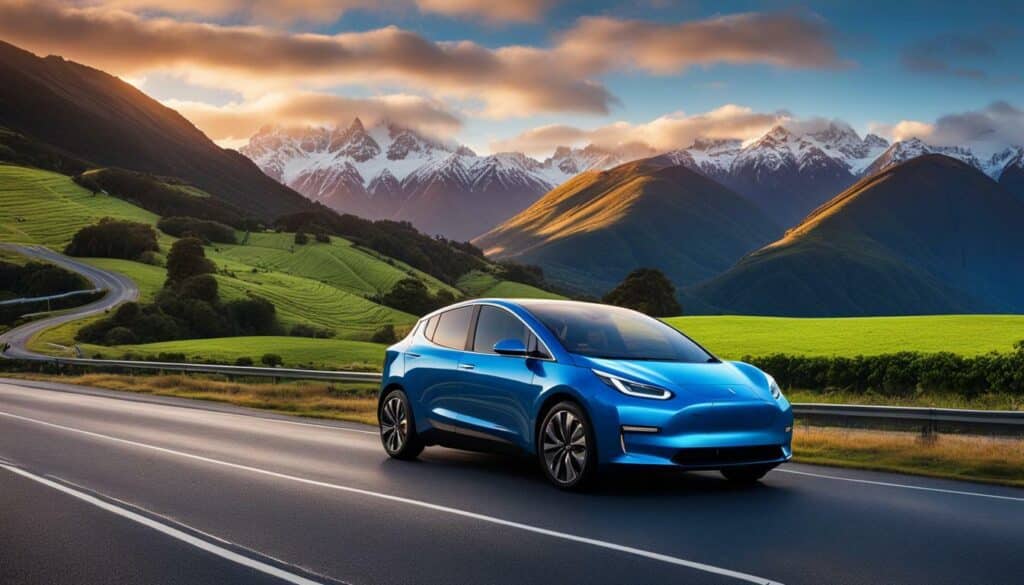Electric vehicles (EVs) are becoming increasingly popular worldwide, and New Zealand is no exception. While there are many benefits to owning an electric vehicle, there are also some drawbacks and challenges that Kiwis may face. In this section, we will explore the advantages and disadvantages of electric vehicles in New Zealand, as well as provide an analysis of the current EV market in the country.
- Electric vehicles offer many benefits for New Zealanders, such as reduced fuel costs and lower environmental impact.
- However, there are also some drawbacks, such as range anxiety, higher upfront costs, and the limited availability of charging infrastructure in some areas.
- The current EV market in New Zealand is still relatively small, but it is growing rapidly. In 2020, there were over 19,000 registered EVs in the country.
- The New Zealand government has set a target of 64,000 EVs on the road by the end of 2021 and has introduced various incentives to encourage EV adoption.
- Ultimately, whether or not an electric vehicle is a good choice for an individual depends on their specific needs and circumstances.
Sustainable Transportation Options in New Zealand
As a journalist focused on sustainable living, I can’t overemphasize the importance of eco-friendly cars in reducing carbon emissions and mitigating climate change. New Zealanders have a growing interest in sustainable transportation options, notably electric vehicles (EVs). EVs are more efficient and less polluting than traditional gasoline-powered cars.
EVs reduce your carbon footprint. According to the New Zealand Transport Agency, EVs emit 80% fewer emissions than conventional vehicles. EVs use less energy, as they capture energy lost during braking and convert it into electrical energy stored in the car’s battery. EVs are also quieter than traditional cars, which can reduce noise pollution.
It’s not just about the environment; electric vehicles also save money. EVs have lower fuel and maintenance costs than traditional cars. According to the Energy Efficiency and Conservation Authority, an EV can cost as little as half as much to run as a gasoline-powered car.
In New Zealand, there are incentives for purchasing an EV. The government offers rebates of up to $8,625 for new EVs and up to $4,312 for used EVs. Some local governments offer additional incentives such as free parking and reduced registration fees.
The benefits of sustainable transportation options like EVs are abundantly clear. By reducing our carbon footprint and saving money, we can create cleaner and healthier communities for ourselves and future generations.
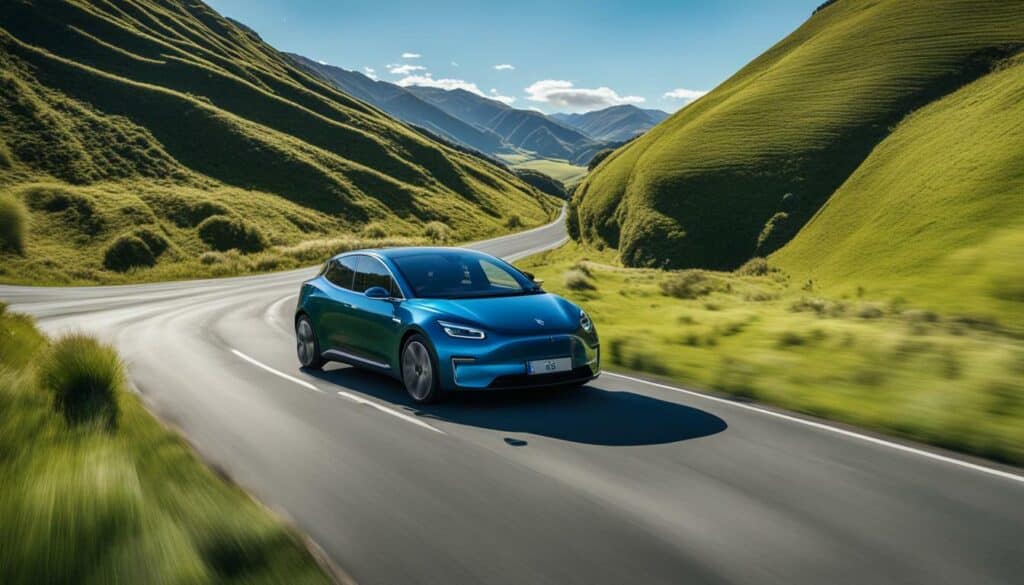
One of the key factors that may influence the decision of Kiwis to switch to electric vehicles is the availability of charging infrastructure. Currently, New Zealand has a growing network of public charging points across the country, including rapid-charging stations that can charge an EV up to 80% capacity in just 20-30 minutes. However, the actual number of charging points may not be enough to meet the demand of the increasing number of EVs on the road.
Moreover, the accessibility of charging infrastructure may vary depending on the location, with some areas having limited charging stations. While home charging is an option for EV owners, it requires the installation of a home charging unit. Some apartment buildings may not have the infrastructure to support this, which may be a barrier to EV ownership.
Despite these challenges, the government has announced plans to expand the current network of charging stations. The government’s target is to have at least one public charging point within every 75 kilometers along the state highway network, as well as in main towns. The government has also proposed measures to increase the number of home charging units by offering interest-free loans for their installation.
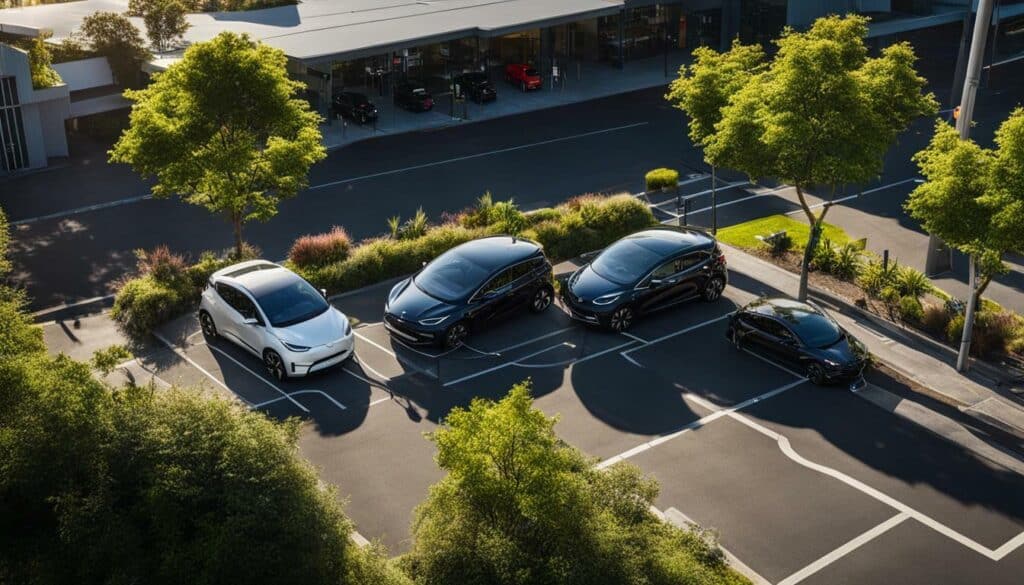
Another initiative to address the availability and accessibility of charging infrastructure is the development of more efficient charging networks. For example, ChargeNet NZ is a private company that aims to install fast-charging stations across the country. They have developed a mobile application that allows EV owners to locate charging stations and view availability in real-time.
As the EV market in New Zealand continues to grow, it is important to address any gaps in the charging infrastructure to support the transition to sustainable transportation options. By improving the accessibility and availability of charging infrastructure, Kiwis can fully take advantage of the benefits of electric vehicles.
Financial Benefits and Cost Savings of Electric Vehicles
One of the advantages of owning an electric vehicle is the potential for significant cost savings over time. While the initial purchase cost of an EV may be higher than that of a traditional car, the long-term savings can be substantial.
Reduced Fuel Costs: EVs run on electricity, which is much cheaper than gasoline. According to the New Zealand Ministry of Business, Innovation and Employment, the average cost of charging an electric vehicle is around one-third the cost of filling up a gas-powered car.
| Vehicle Type | Cost per kilometer (NZD) |
|---|---|
| Gas-powered car | $0.16 |
| Electric vehicle | $0.06 |
In addition, some EV charging stations offer free charging, further reducing the cost of ownership.
Lower Maintenance Costs: Electric vehicles have fewer moving parts than gasoline-powered cars, which means they require less maintenance. EVs do not require oil changes, spark plug replacements, or emissions tests, resulting in lower maintenance costs over time.
Government Incentives: The New Zealand Government offers incentives to EV owners, including an exemption from road user charges and reduced registration fees. Additionally, businesses that purchase EVs may be eligible for an accelerated depreciation rate, resulting in additional tax savings.
Overall, the financial benefits and cost savings of owning an electric vehicle are significant. While the initial purchase cost may be higher, the long-term savings on fuel and maintenance expenses, combined with government incentives, make EV ownership an attractive option for New Zealanders.
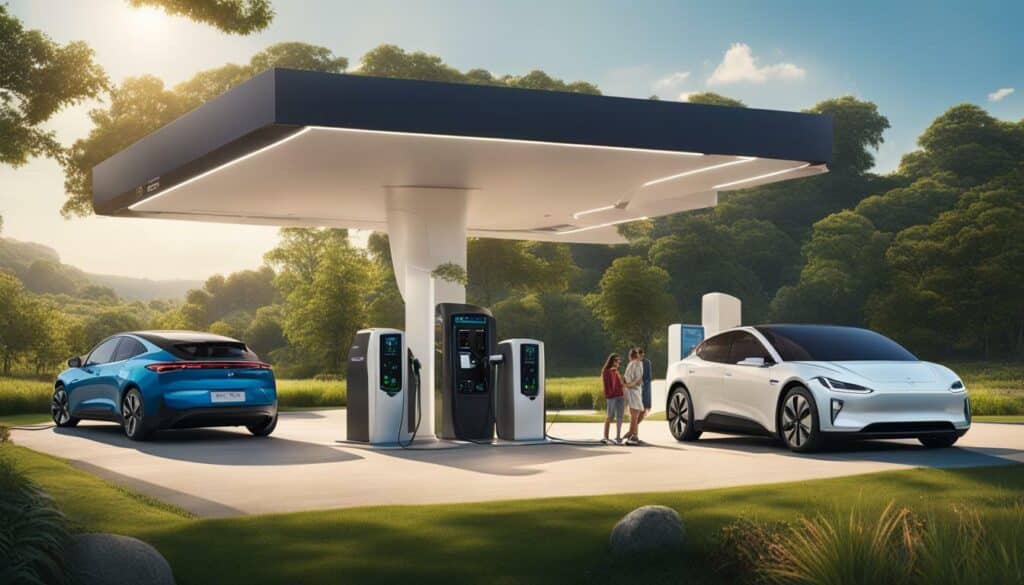
Electric vehicles have become increasingly popular in New Zealand due to their positive impact on the environment. EVs produce lower greenhouse gas emissions and air pollution compared to traditional petrol and diesel-powered cars, making them a more eco-friendly transportation alternative.
The shift towards electric vehicles is an important step in reducing carbon emissions and mitigating the effects of climate change. According to a recent report by the Ministry of Transport, transportation contributes to 18% of New Zealand’s total greenhouse gas emissions, and the majority of these emissions come from the use of petrol and diesel-powered vehicles.
Electric vehicles can significantly reduce these emissions and help lower air pollution levels. In addition, they also offer a quieter and smoother ride, which is beneficial for both drivers and the environment.
Electric Vehicle Battery Production and Disposal
While EVs offer many environmental benefits, concerns have been raised about the environmental impact of EV battery production and disposal.
The production of electric vehicle batteries requires large amounts of energy, and the extraction of raw materials such as lithium and cobalt can have negative environmental impacts. However, battery technology is improving rapidly, and efforts are being made to develop more sustainable battery production methods.
Similarly, the disposal of EV batteries raises concerns about the potential environmental impact. However, EV batteries can be recycled, and many initiatives are underway to develop more effective recycling methods. In fact, EV batteries contain valuable materials, such as cobalt and nickel, which can be repurposed and reused.
Overall, while there are some environmental concerns surrounding EVs, the benefits in reducing greenhouse gas emissions and air pollution far outweigh the drawbacks. With the continued development of EV technology and sustainable production and disposal methods, electric vehicles will play a significant role in creating a more sustainable future for New Zealand.
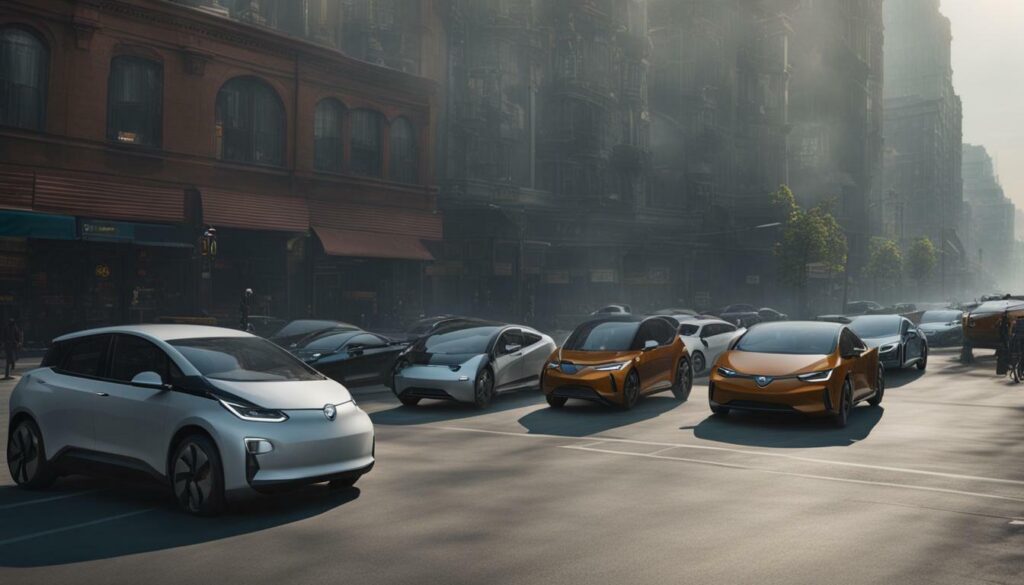
One major concern for many Kiwis considering the switch to electric vehicles is range anxiety. Range anxiety is the fear that the battery of an electric vehicle will not last long enough to complete a journey, leaving the driver stranded without a charging station in sight.
Fortunately, there are several measures being taken to address this concern. First and foremost, improvements in EV battery technology have resulted in longer ranges for electric vehicles. Many modern EVs can travel over 300 kilometers on a single charge, making them a more practical option for daily commutes and longer trips.
In addition to technological improvements, the expansion of charging infrastructure across New Zealand helps alleviate range anxiety. Public charging points are increasingly available in major cities and urban areas, and many businesses are now offering EV charging stations in their parking lots to attract customers. Some local councils have also installed charging infrastructure in public areas to encourage more Kiwis to transition to electric cars.
Another way to address range anxiety is by developing more efficient charging networks. Fast-charging stations can recharge an electric vehicle’s battery in just a few minutes, eliminating the need for lengthy waits at charging stations. Companies such as ChargeNet are working on expanding the availability of fast-charging stations across New Zealand.
For those transitioning to electric cars, there are also several tips that can help alleviate range anxiety. Planning out driving routes in advance can help identify charging stations along the way, and adjusting driving habits to maximize battery life can also extend the range of an electric vehicle. Additionally, many EVs now come with smartphone apps that can help locate nearby charging stations and monitor battery life.
Overall, while range anxiety can be a concern for those considering electric vehicles in New Zealand, there are several strategies and solutions in place to address this issue. With improvements in EV technology and charging infrastructure, more Kiwis are making the switch to electric cars and reaping the benefits of sustainable transportation options.
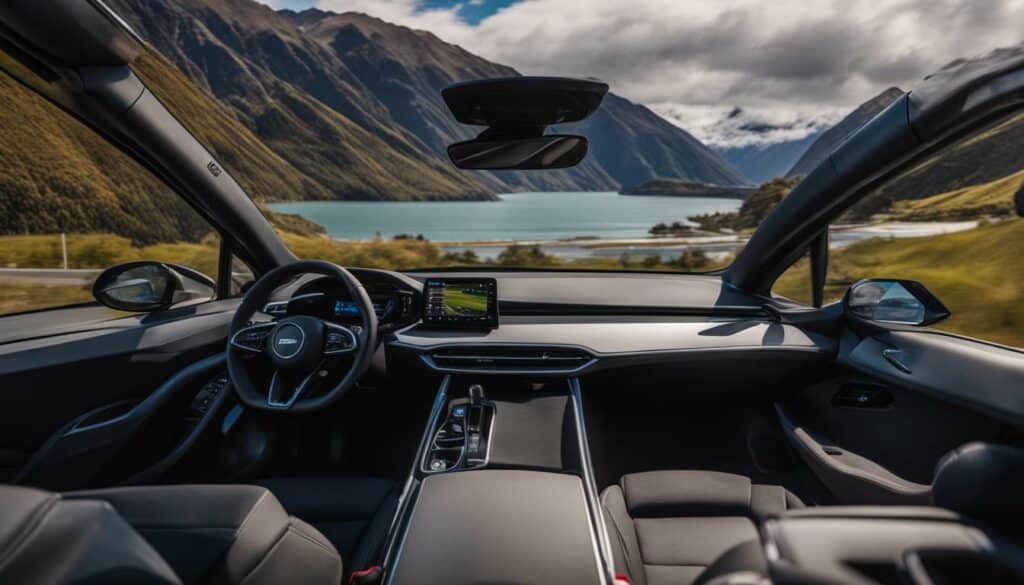
Conclusion
After exploring the pros and cons of electric vehicles for New Zealanders, it is clear that there are many benefits to choosing sustainable transportation options. Electric vehicles offer a way to significantly reduce carbon emissions and contribute to a cleaner environment. Additionally, the financial advantages and cost savings associated with EV ownership make it a compelling option for individuals looking to save money in the long run.
However, there are also challenges and concerns associated with electric vehicles, such as range anxiety and the initial cost of purchasing a new EV. It is important for individuals to carefully weigh these factors when considering making the switch to electric cars.
Overall, the electric vehicle market in New Zealand is still evolving, and there is much room for growth and improvement in terms of charging infrastructure and battery technology. As the market continues to expand, it is likely that we will see more Kiwis transitioning to electric cars in the years to come.
Whether or not electric vehicles are the right choice for you ultimately depends on your personal needs and circumstances. However, it is clear that electric cars offer numerous benefits for New Zealanders seeking to reduce their carbon footprint and save money on transportation costs.
The Pros and Cons of Electric Vehicles for New Zealanders
FAQ
What are the advantages of owning an electric vehicle in New Zealand?
Some of the advantages of owning an electric vehicle in New Zealand include reduced fuel costs, lower maintenance expenses, and government incentives such as rebates and tax credits.
Are there any drawbacks or challenges associated with electric vehicles in New Zealand?
Yes, some challenges include range anxiety (concerns about running out of battery), limited charging infrastructure in certain areas, and the initial cost of purchasing an electric vehicle.
How is the electric vehicle market in New Zealand currently?
The electric vehicle market in New Zealand is growing steadily. There has been an increase in the number of electric vehicles available for purchase, as well as the expansion of charging infrastructure across the country.
What are some sustainable transportation options in New Zealand?
Sustainable transportation options in New Zealand include electric vehicles, hybrid vehicles, and public transportation systems that prioritize energy efficiency and reduced carbon emissions.
What are the environmental benefits of choosing electric vehicles over gasoline-powered cars?
Electric vehicles produce zero tailpipe emissions, reducing air pollution and greenhouse gas emissions. They also contribute to energy diversification and can help mitigate climate change.
How is the electric vehicle charging infrastructure in New Zealand?
The electric vehicle charging infrastructure in New Zealand is improving, with an increasing number of public charging stations and options for home charging. However, there are still some areas where charging infrastructure may be limited.
Are there any financial benefits or cost savings associated with owning an electric vehicle in New Zealand?
Yes, electric vehicle owners in New Zealand can save on fuel costs, as electricity is generally cheaper than gasoline. There may also be savings on maintenance expenses, as electric vehicles have fewer moving parts compared to internal combustion engine vehicles.
What is the environmental impact of electric vehicles in New Zealand?
Electric vehicles have a positive environmental impact in New Zealand, as they produce lower emissions compared to gasoline-powered cars. They help reduce air pollution and contribute to a cleaner and more sustainable transportation sector.
How can individuals overcome range anxiety when transitioning to electric cars in New Zealand?
Range anxiety can be alleviated by familiarizing oneself with charging infrastructure locations, understanding the range capabilities of the chosen electric vehicle, and planning routes that include charging stops. Additionally, advancements in battery technology are increasing the range of electric vehicles.
